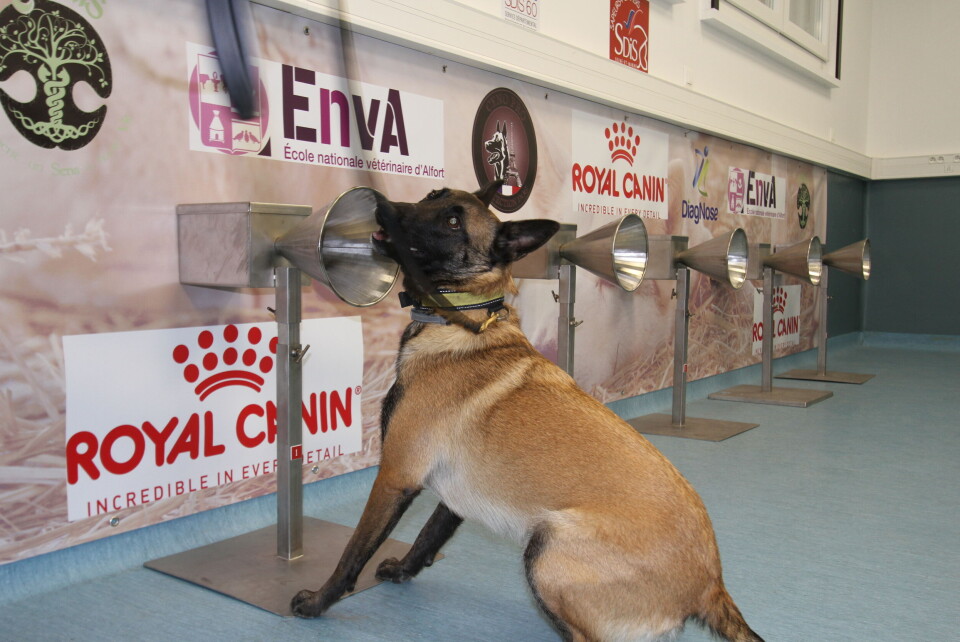-
Britons are the largest foreign community of second-home owners in Nouvelle Aquitaine
See which other departments in the region are popular with British nationals
-
Travellers risk extra costs under new Eurotunnel ticket rule
Some fare options are less flexible and less forgiving of lateness
-
May will be difficult month for train travel in France, warns minister
Two major train unions are threatening to strike and are ‘not willing to negotiate’, he says
Covid detector dogs set for real-life trials in France in July
There will be two experiments at a port and at an airport

France is set to deploy several sniffer dogs capable of detecting Covid-19 this month in two trials that will be carried out at a port and at an airport.
“A broader deployment will be carried out during the summer if these results prove successful," France’s Health Minister Olivier Véran told newspaper the Journal du Dimanche.
There is no confirmation yet of when or where exactly the trials will take place.
The sniff tests can be done without direct contact with the public to avoid situations where people who dislike dogs or are afraid of them come into contact with them.
Instead samples are gathered by asking people to rub cotton pads under their armpits, and these will then be put into containers for the dogs to sniff.
Professor Dominique Grandjean is one of the world’s leading experts in using dogs’ sense of smell to detect illness in humans, and an international team, led by Prof Grandjean from the École nationale vétérinaire d'Alfort (EnvA), was the first to show that sniffer dogs could easily detect people who were infected with Covid.
He said the trials will help to work out the best organisational strategy for using Covid sniffer dogs.
“Depending on the results of the tests, and how they show the best organisation for rapid testing and the flow of people should be, we will then determine the best way for a rapid expansion in the training of detector dogs,” Prof Grandjean told The Connexion.
“We should be able to use the dog-handlers who have already been trained to train others and so there is the potential to get enough dogs for everyday use quickly.”
It usually takes three months to train a new dog to be a reliable sniffer dog, but once they have gone through the training, they can be trained to detect new smells in two or three weeks.
Handi’Chiens, an association that trains assistance dogs and has been working on a project to train dogs to detect Covid-19, states that tests show the dogs are capable of detecting Covid-19 in people over 90% of the time.
A trial in the UK showed dogs had an 88% accuracy rate in detecting Covid-19 in patients, but were also wrong in 16% of cases.
Handi’Chiens has received authorisation to use Covid-detecting dogs in retirement and care homes and has three dogs ready to be deployed from the middle of July.
While dogs have been used to screen people in the Middle East and parts of South America, French authorities refused to give the go-ahead for work outside the vet school until earlier this year, saying they needed to be convinced that dogs would be reliable.
The results of the French tests will be sent to the World Health Service, with which Prof Grandjean is working to draw up global training and validation programmes.
Prof Grandjean has created a public survey to find out how people feel about using sniffer dogs to detect Covid-19. You can participate in the survey at this link (in French).
Read more:
Covid sniffer dogs could work summer events in France
Pets ‘can catch Covid’ but owners in France told not to panic
























